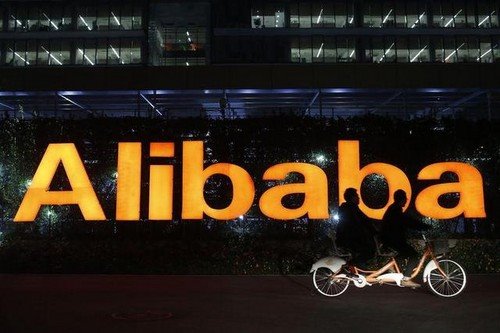

 |
Firm denies it has taken a hit from the economic slowdown, claims payroll was already too large
Amid the decline in its share price in New York, Chinese e-commerce giant Alibaba Group Holding Ltd has announced a cut in its campus recruitment quota.
With the original goal of recruiting more than 3,000 fresh graduates in 2016, the Hangzhou-based company said on its official campus recruitment website that the recruitment quota will "shrink due to changes in the group's talent strategy" and "those who were likely to be recruited will have to face tougher competition".
Alibaba did not give any specific numbers, but in an e-mail reply to China Daily on Monday, it said that it has already made 1,407 offers and it is expected to make another several hundred based on potential candidates' test results.
The company denied market speculation that it was planning to cut the salaries offered to candidates in a bid to drive them away.
Alibaba said that its salary package is based on supply and demand in the human resources market, and the overall salary standards for college graduates are also taken into consideration.
The company explained the changes to its recruitment plan in a statement, saying it recently reviewed its business, organization and team only to find that "it has more people than it needs".
The company, which in mid-August announced a $4 billion share repurchase program over the next two years to restore investor confidence, said it is still on a sound development track, but it has to rethink its talent strategy in order to avoid becoming an overstaffed organization.
Analysts said the changes to Alibaba's campus recruitment plan are in line with the difficulties it faces.
Lu Zhenwang, an independent Internet expert and chief executive officer of Wanqing Consultancy in Shanghai, said that just like other tech and Internet companies in China, Alibaba faces major challenges if it wants to maintain the kind of rapid development it has enjoyed in the past few years.
"Alibaba is expected to see growth in its new online shoppers peak by the end of 2015. Its future growth will need to come from the increase in online spending rather than growth in new users," he said.
However, it seems that persuading Chinese people to spend more on its sites will be a challenging task, especially with the slowdown of the Chinese economy.
Alibaba's report for the quarter ended June 30 showed that its total revenue reached $3.27 billion, up 28 percent year-on-year, which was much slower compared with the around 60 percent year-on-year growth in previous years.
The company, which had the world's largest IPO in last September, saw its stock price dip below its offer price of $68 for the first time in late August.
Mo Daiqing, an analyst with China E-Commerce Research Center in Hangzhou, Zhejiang province, blamed fierce competition, especially the rise of other online shopping sites in China, for the slowdown in Alibaba's business.
Lu from Wanqing Consultancy said: "With the slowing growth of people's incomes, the money they want to spend online will see no rapid growth in the coming year, which is expected to hurt Alibaba's e-commerce business."
To seek new growth points, the company has expanded into new areas, such as finance, cloud computing and the movie industry.
"But it will take a while for the new businesses to offset the slowdown of e-commerce business," he said.
 Models change clothes on street in Hangzhou
Models change clothes on street in Hangzhou Charming iron ladies in China's upcoming V-Day celebrations
Charming iron ladies in China's upcoming V-Day celebrations In pics: armaments displyed in massive military parade
In pics: armaments displyed in massive military parade Charming Chinese female soldiers
Charming Chinese female soldiers Volunteers required not taller than 5ft 5in
Volunteers required not taller than 5ft 5in  Czech pole dancing master teaches in Xi'an
Czech pole dancing master teaches in Xi'an Shocked! PLA smokescreen vehicle drill
Shocked! PLA smokescreen vehicle drill Foreigners experience tranditional Chinese wedding
Foreigners experience tranditional Chinese wedding Blind date with bikini girls in Nanjing
Blind date with bikini girls in Nanjing The men are taking off
The men are taking off Rights to ratify Dalai restated
Rights to ratify Dalai restated More Chinese having online affairs
More Chinese having online affairs  Who should clean the Arab Spring mess?
Who should clean the Arab Spring mess? Day|Week